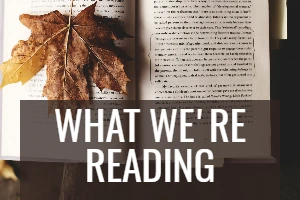“I thought the train was leaking fuel,” thinks protagonist Lillian Waters in Stephanie Clifford’s The Farewell Tour, “but I’d learn it was the smell of Tacoma itself, muddy, sulfurous, and industrial, topped with diesel.”

Of abundant American settings in The Farewell Tour – Nashville, Memphis, Bakersville, Walla Walla – Clifford’s 1940s Tacoma surpasses all in fine-grain detail, historical import, and emotional heft. Readers might not expect a Northwest novel from a book about a midcentury country singer, but The Farewell Tour is very much a story of Washington state, albeit hidden in a star-spangled package.
Clifford’s star is Lillian Waters, aka country singer Water Lil, aka Lena Thorsell, born poor “on a farm west of Walla Walla town.” Diagnosed with a career-ending polyp on her vocal cord, Waters hits the road in 1980 for her final musical tour, a last gasp at capital-A Art after the youth-obsessed music industry casts her aside.
The Farewell Tour flashes expertly between this road trip and Lillian’s coming-of-age. Early chapters in Depression-era Walla Walla – where 10-year-old Lil leaves her troubled family – read a bit like Marilynne Robinson’s Housekeeping, while the novel’s exploration of band dynamics would be at home in David Mitchell’s recent Utopia Avenue. The novel’s Tacoma sections are entirely of Clifford’s make, and Tacoma, “aroma” or no, is where The Farewell Tour shines.
Lillian reaches the industrial port in 1940 (via the Northern Pacific in Pasco) with nothing but her Gretsch guitar and a headful of hope. She gets a job waitressing for soot-stained lumpen – Tacoma overflowed with them at the time – and starts kicking down doors in the local music scene.
Clifford, who grew up in Seattle, emphasizes this Northwest setting with a memorable scene after the attack on Pearl Harbor, one that finds Waters wandering through Tacoma’s Nihonmachi (Japantown) trying to make sense of things. “Evacuation Sale,” reads one sign. “Fifty percent off.”
“It reminded me of being in Walla Walla when the banks closed, the farmers selling their best stock horses for a fraction of their value.” When the men enlist, leaving a vacuum on local radio, Waters does what she came to do: perform.
Author Clifford, an award-winning New York Times journalist, clearly has a musical background – either playing or listening, but if it were only the latter I’d be shocked. Early in Water Lil’s Tacoma stint, she hears “the new kind of jazz that had been catching on lately,” specifically Charlie Christian on a Gibson ES-150, “playing his amplified guitar as easily and melodically as if he were skipping over piano keys.”
Thus begins a blistering tumult of musical reference, entirely necessary in a novel such as this but lacking in most that try. Clifford dives deep – genuinely, unapologetically deep – into the midcentury American canon, producing singers, songs, and lyrics to match any situation. In one especially impressive section, she recreates the act of songwriting on the page, and does so convincingly in a literary stream of consciousness.
“The shape of the song came at me fast. Letters back and forth between the narrator and her man stationed overseas. No, not her man stationed overseas. Too obvious. I crossed that out. Her friend stationed overseas, her best friend from growing up…”
Songcraft is hard work, and so is writing about it. Making it as a runaway female country singer in the 1940s would be more difficult than either. Clifford’s greatest feat is fashioning a convincing underdog tale, one that builds Water Lil into a gritty, no-nonsense heroine with just enough of a self-deprecating streak to invoke our sympathy. I did find some of the final twists and turns too on-the-head, but by that point I was roped in.
A musician myself, I’m always disheartened by the rows of electric guitars coating pawn shop windows. Seattle isn’t alone in this phenomenon, but it’s exacerbated at the heart of grunge. With so many artists around, and so much evident failure, we players often hope that someone, somewhere, is making it — even in a work of fiction.
“No matter how bad things got,” Lil tells us, “I didn’t hock the Tele.”
Discover more from Post Alley
Subscribe to get the latest posts sent to your email.

I also enjoyed reading The Farewell Tour, and, as a long-ago deejay, agree with you that the author handles the music (and music business) beautifully. It’s a story of a girl who escaped a miserable childhood to find success in a man’s world at a high personal cost, then reaches a point of hopefulness through a letting-go process. That plot line isn’t new, but it’s very well-told here, I think. The historical Northwest in Walla Walla and Tacoma is icing on the cake.